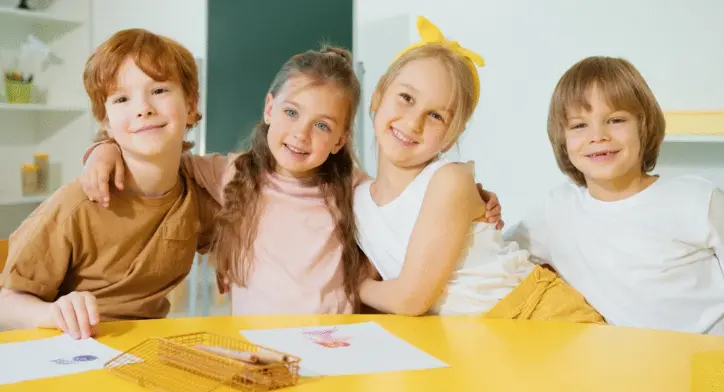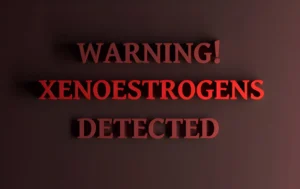That first shared laugh between you and your little one? It’s way more significant than just a cute moment. You’re witnessing a crucial developmental breakthrough that impacts how your child’s brain grows, how they connect with others, and how they bounce back from life’s challenges.
Sure, most grown-ups see children’s humor as just fun and games. But here’s what researchers have discovered: kids’ jokes actually function as incredibly powerful brain-building tools. They boost language skills, strengthen relationships, and wire young minds for success. When you understand what laughter does for developing brains, it completely changes how you think about raising kids, and the benefits stick around long after those early giggles fade.
What Actually Happens in Your Child’s Brain During Joke Time
You know humor helps kids develop, but what’s really going on upstairs when your little comedian encounters their first knock-knock joke? The neurological processes behind laughter are fascinating, and they explain why comedy becomes such a game-changer for growing minds.
Your Child’s Brain Lights Up Like a Christmas Tree
Here’s a mind-blowing stat: 99.17% of children produced at least one instance of humour in the peer play session. That shows you how universal and neurologically important humor really is for kids.
And get this: your kid’s brain actually holds onto funny stuff better than boring facts. Memory consolidation works more effectively when information is delivered with a side of humor. Think about it: your child probably remembers silly songs and goofy stories way longer than they remember what you told them about cleaning their room, right?
When Your Child’s Funny Bone Actually Develops
Developing humor skills in children happens in pretty predictable stages across different ages. Your toddler (2-4 years old) absolutely loves physical comedy. Peek-a-boo, ridiculous faces, over-the-top gestures; these make them dissolve into those adorable belly laughs. Their developing brains are hardwired to find surprises and things that don’t make absolutely sense.
Once your kid hits 5-7, they start getting language-based humor as their vocabulary grows. Every time your kid engages with a kids riddle or listens to a silly story, they’re unconsciously practicing complex language skills.
Simple wordplay, rhyming games, and basic puns become their new entertainment obsession. By 8-10? They’re grasping sophisticated joke structures, understanding setup-punchline formats, and even writing their own material. All those brain regions lighting up during humor processing create real, measurable cognitive advantages.
How Jokes Actually Make Your Kid Smarter
The benefits of jokes for kids go way beyond just keeping them entertained. They create lasting improvements across multiple areas of brain function. Research consistently proves that humor-rich environments produce real gains in language development, critical thinking, and memory retention.
Your Child’s Vocabulary Explodes Through Funny Wordplay
Their phonological awareness gets better as they pick up on rhyming patterns, similar sounds, and rhythm changes that make jokes work. Their vocabulary grows through exposure to new words used in funny contexts.
Grammar mastery accelerates when children analyze joke structures. They figure out timing, sentence construction, and word order by understanding why certain phrases crack them up while others just don’t land.
Critical Thinking Gets Stronger Through Humor Logic
Pattern recognition develops as your child identifies common joke formats and starts predicting punchlines. Abstract thinking strengthens when kids understand metaphorical humor that compares totally different things in unexpected ways. Problem-solving skills improve through riddle-solving activities that require logical reasoning and creative solutions.
Memory and Focus Improve with Funny Content
Children show dramatically better recall for information presented with humor compared to traditional teaching methods. Sustained attention increases during humor-based activities because laughter triggers dopamine release, creating natural motivation to keep going. Working memory strengthens as kids process multi-step jokes that require holding setup information while anticipating the payoff.
Understanding humor’s power for thinking skills is just the start. The real magic happens when shared laughter becomes the foundation for emotional regulation and meaningful friendships.
Building Emotional Intelligence Through Early Giggles
Early childhood humor serves as a crucial foundation for emotional development and social skills. Children who regularly engage with age-appropriate comedy develop stronger emotional regulation abilities and build more meaningful connections with peers.
Learning to Handle Big Feelings Through Laughter
Laughter naturally reduces stress hormones like cortisol while boosting endorphins that promote well-being. Your child learns to use humor as a healthy coping strategy when facing tough situations or uncomfortable emotions.
Here’s an interesting finding: A Pew Research poll revealed that viewers of humorous news shows remember more current events than those relying on traditional news sources. This highlights humor’s power to make difficult topics more accessible and memorable for developing minds.
Growing Empathy Through Shared Comedy
Perspective-taking skills grow when children engage with character-based jokes that require understanding different viewpoints. Cultural sensitivity develops through exposure to diverse humor styles and traditions. Conflict resolution improves as kids learn to use appropriate humor to defuse tension and rebuild connections.
Building Friendships Through Joke-Sharing
Social inclusion happens naturally when children share humorous experiences with peers. Leadership skills emerge as confident joke-tellers learn to entertain and engage groups. Collaborative creativity flourishes when kids work together to invent new games, stories, and comedic scenarios.
Now that we understand humor’s developmental power, how do you actually put this knowledge to work? Different ages require different approaches for maximum benefit.
Tailoring Humor to Your Child’s Age and Stage
The importance of humor in childhood varies significantly across developmental stages. You need tailored approaches that match your child’s cognitive and social abilities. Success depends on understanding what types of humor click at different ages.
Toddler Humor Strategies (Ages 2-3)
Physical comedy works best with toddlers who absolutely delight in unexpected movements, silly sounds, and exaggerated facial expressions. Interactive peek-a-boo variations can incorporate educational elements like counting, colors, or animal sounds while maintaining that element of surprise that generates giggles.
Simple cause-and-effect games where actions produce funny results help toddlers understand basic humor mechanics while developing motor skills and cognitive awareness.
Preschooler Comedy Development (Ages 4-5)
Character-based humor through storytelling captures preschoolers’ growing imagination and language skills. Rhyming joke creation exercises help kids understand word patterns while encouraging creative expression. Visual aids make abstract humor concepts more concrete and accessible.
Early Elementary Humor Growth (Ages 6-8)
Structured joke-telling practice sessions build confidence and public speaking skills. Cross-curricular humor integration makes learning more engaging across subjects like math, science, and reading. Peer collaboration in comedy creation projects strengthens social bonds while developing communication skills.
Creating the right environment matters just as much as choosing age-appropriate content. Let’s explore how to transform your spaces into comedy-friendly zones.
Setting Up Humor-Rich Spaces for Maximum Impact
Environmental factors significantly influence how children develop and express their sense of humor. Intentionally designed spaces and routines can maximize humor’s developmental benefits while creating positive associations with learning and social interaction.
Building Comedy Culture at Home
Daily humor rituals like family joke-sharing time create consistent opportunities for laughter and connection. Humor-themed reading corners stocked with age-appropriate funny books encourage independent exploration of comedy. Seasonal traditions incorporating silly games and activities build lasting positive memories while reinforcing humor’s place in family life.
Bringing Humor Into Educational Settings
Classroom humor incorporation requires careful balance to enhance rather than distract from learning objectives. Teacher training programs help educators use appropriate comedic timing and content selection. Peer mentoring systems featuring humor skill development create natural learning opportunities while building social connections.
Even with proper support, some children need specialized approaches to humor development. Therapeutic applications of comedy can support children with special needs, trauma histories, and various developmental differences.
The Bottom Line on Childhood Humor Development
Kids’ jokes represent something much deeper than simple entertainment; they’re essential building blocks for cognitive growth, social competence, and emotional resilience. The benefits of jokes for kids span multiple developmental areas, from enhanced memory and language skills to improved peer relationships and stress management abilities.
When you create environments that celebrate and nurture early childhood humor, you’re setting your children up for lifelong success in learning, relationships, and personal well-being. Understanding the profound importance of humor in childhood gives you powerful tools for supporting healthy development that will serve your kids throughout their entire lives.
So the next time your little one tells you a completely nonsensical joke and expects you to laugh? Go ahead and crack up. You’re not just being a good sport; you’re actively supporting their brain development, social skills, and emotional growth. Now that’s something worth laughing about.
Your Most Pressing Questions About Kids and Humor
Why is messy play important in early childhood?
It allows children to use their natural curiosity and engage their senses at the developmental level appropriate for them. They learn foundational cognitive principles as they exercise motor, language, and social skills. Messy play offers one of the best integrated learning experiences children can have.
At what age should children start understanding simple jokes?
Most children begin appreciating basic humor around 18 months with physical comedy, progressing to verbal jokes by age 3-4 when language skills develop sufficiently.
How can parents tell if their child’s humor development is on track?
Look for age-appropriate laughter responses, attempts at joke-telling, and social humor sharing with peers as key indicators of healthy humor development progression.
Also Read-Why Tech-Savvy Designers Are Turning to Virtual Tools for Better Results








